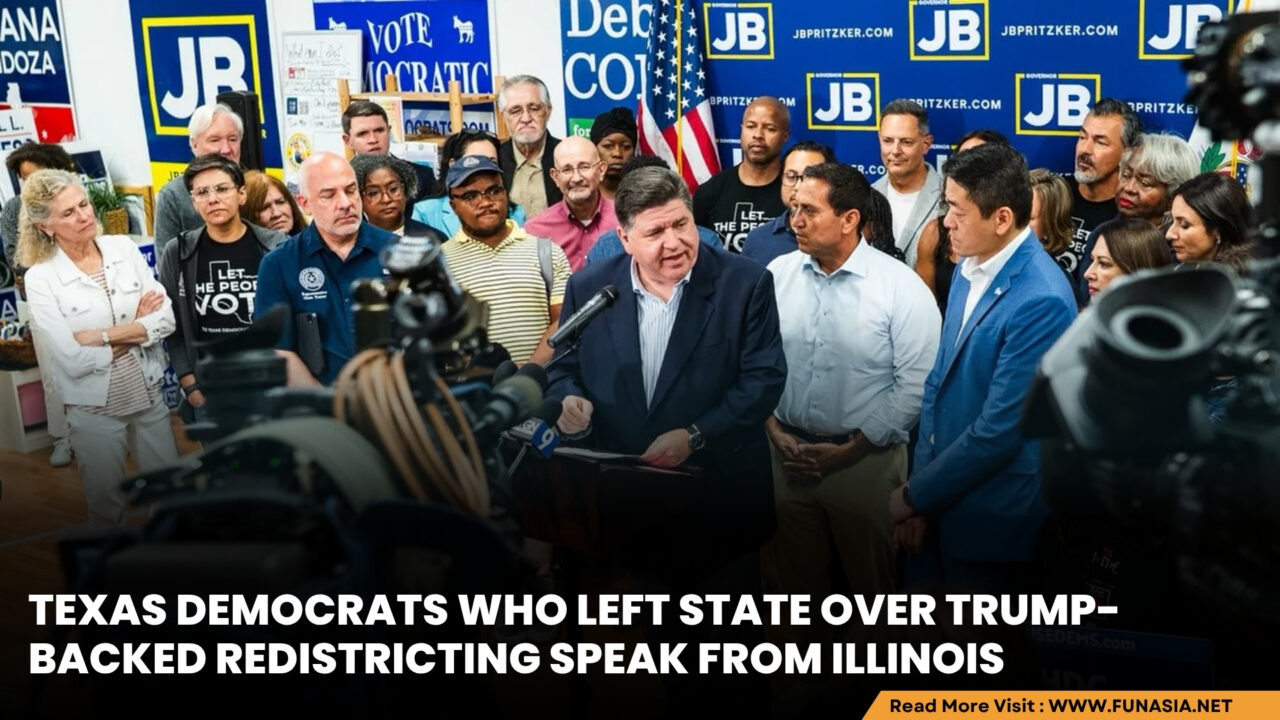
Texas Democrats Flee State to Block Trump-Backed Redistricting Maps, Speak from Illinois
In a dramatic move to block a controversial redistricting plan backed by former President Donald Trump, dozens of Texas Democratic lawmakers have fled the state, speaking publicly from Illinois on Monday evening.
The proposed congressional maps, which Republicans are pushing through the Texas Legislature, could add up to five GOP-leaning seats before the 2026 midterm elections—further solidifying their majority in the U.S. House. Currently, the GOP controls 25 of Texas’ 38 seats.
To stall the legislation, Democratic lawmakers left the state on Sunday, relocating to Illinois and New York. Their absence prevents the Texas House from achieving quorum, halting the vote scheduled for Monday.
Texas Governor Greg Abbott responded swiftly, stating he would begin the process of removing the absent lawmakers from office if they failed to return. He cited a 2021 nonbinding legal opinion from Attorney General Ken Paxton, which suggested that lawmakers who abandon their post could be ruled as having forfeited their office.
Abbott went further, accusing the Democrats of potentially committing felonies by fundraising to pay for legal penalties they might incur for their absence.
In response, Democratic lawmakers accused the governor of making threats that exceed his legal authority. Speaking from Chicago, they described Abbott’s tactics as “smoke and mirrors” designed to intimidate and distract from the redistricting issue.
Illinois Governor JB Pritzker welcomed the lawmakers but did not disclose how long they planned to remain out of Texas.
This isn’t the first time Texas Democrats have left the state in protest. In 2021, they delayed a vote on restrictive voting laws by leaving for over a month. Despite the delay, Republicans passed the measure upon their return.
This latest standoff reflects the high stakes of redistricting in Texas and underscores Trump’s ongoing influence over national GOP strategy. It also raises larger questions about the limits of executive power and the growing partisan rifts in state and national politics.












